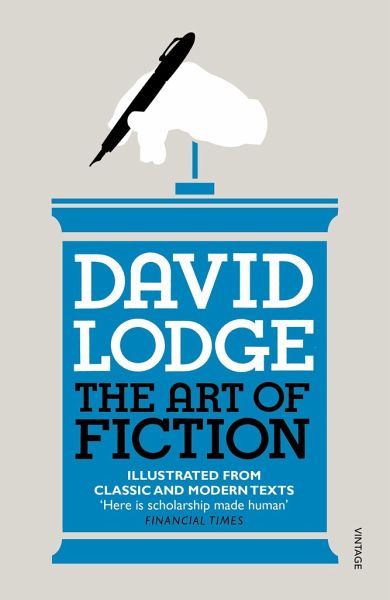
The Art of Fiction
Versandkostenfrei!
vor Weihnachten nicht mehr lieferbar
17,99 €
inkl. MwSt.
Weitere Ausgaben:

PAYBACK Punkte
9 °P sammeln!
In this entertaining and enlightening collection David Lodge considers the art of fiction under a wide range of headings, drawing on writers as diverse as Henry James, Martin Amis, Jane Austen and James Joyce.
Dieser Artikel kann nur an eine deutsche Lieferadresse ausgeliefert werden.



